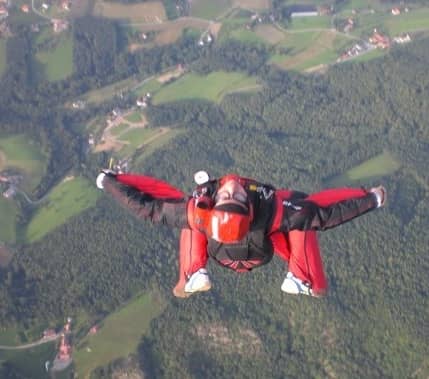-
Content
7,120 -
Joined
-
Last visited
-
Days Won
7 -
Feedback
0%
mccordia last won the day on September 6 2021
mccordia had the most liked content!
Community Reputation
74 GoodGear
-
Main Canopy Size
150
-
Reserve Canopy Size
143
-
AAD
Cypres 2
Jump Profile
-
Home DZ
The world
-
License
D
-
License Number
94775
-
Licensing Organization
KNVvL
-
Number of Jumps
6000
-
Tunnel Hours
1500
-
Years in Sport
22
-
First Choice Discipline
Wing Suit Flying
-
First Choice Discipline Jump Total
4500
-
Second Choice Discipline
Freeflying
-
Second Choice Discipline Jump Total
500
-
Freefall Photographer
No
Ratings and Rigging
-
Formation
Coach
-
USPA Coach
No
-
Pro Rating
Yes
-
Wingsuit Instructor
Yes
Recent Profile Visitors
3,533 profile views
-
Find a decent job outside of skydiving, and use the income to get real skills in flying in your discipline of choice, so you can get a cool / fun job in skydiving. Though there are a lot of nice entry level options (packer etc) they tend to not really generate a lot of budget for skydiving, unless you work so much you don't have time/energy for skydiving. Also having real world skills will mean that you have actual fallback options in case skydiving for some reason is no longer your main source of income or passion at later age. I work fulltime in skydiving, but still do some work in my real profession (3D animation) on the side, as that is what allows me to not have to work 30 days a month, but also take time off for own skydiving/basejumping adventures with an actual budget to spend. Working in skydiving is incredible, but its the coaching at a higher skill level where the real fun is to be had.
-

Which dropzone has the best weather (on average)?
mccordia replied to Marc K's topic in Events & Places to Jump
Though flying a suit with the DZ logo assisting in DZ promotion, I have a good 400+ jumps at the DZ paid from my own pocket, for training, funjumps and events I organized. Though in other parts of the world, there might be plenty better options, but if looking for a place to jump in Europe in winter, you options are incredibly limited. With 15.000 ft as a standard drop altitude, multiple fast twin turbine airplanes, it's definitely one of the better (if not only) real choice in Europe for fall/winter. Arizona, Elsinore and many USA dropzones trump SS in facilities, lift capacity and more. The only reason I mentioned the dropzone, is as Ive been there a lot, and feedback on EU dropzones tends to be limited. These tend to be my primary focal points when looking at places to coach/train. Champagne and a lounge area are nice perks, but not always the main reason I visit a DZ -
Have passenger hold you on the shoulders / rig, and use your hands to hold the passengers legstraps. Exit linked with this 4 point configuration, once stable belly to earth, place passenger on your bum where you want him/her to be, then open arms and fly. This works out of any side-door, tailgate etc. As long as you have these 4 points of contact, like a tandem, you can roll 6 times and still stay tight together and come out flying...
-
Practically, you can probably time a flare to have the 'close to zero momentum' moment coincide with touchdown on an object. A true 'wingsuit landing' But most methods discussed, practical and theoretical, including past (intentional or unintentional) successful attempts have all relied on boxes, water, a hill, trees, a huge slide, engines, windtunnels, rope/hooks etc . Though indeed all 'landing a wingsuit' you're still using an outside additions of a gradient/hill or various bits of gear to assist in decreasing velocity. If choosing to use an additional object, parachutes are most likely still the safest bet, until someone actually lands a wingsuit unassisted...:)
-

What is the maximum glide ratio for a wingsuit these days?
mccordia replied to alfonso904's topic in Wing Suit Flying
Though there are many examples of flying sustained over 3.0 glide, its in 100% of the cases residual energy from a dive and/or tailwind, or (BASE) having the right conditions with high lift and/or a tailwind. Ive done a few flights where the glide got pushed up to a comfortable 4.5, but if you where to take the winds/thermals out, that would still only end up around 3.0 sustained. -

Improvements to helmet communication systems.... what is possible?
mccordia replied to Mike_wth's topic in Wing Suit Flying
Ive never used the antenna up, always left it folded down, and we only use the mesh connection. Yesterday we jumped a cliff (Brento) and about 1.5 km away, with me on the ground and my partner 1.2 km up on the mountain, we had good reception without the antenna out. -

Improvements to helmet communication systems.... what is possible?
mccordia replied to Mike_wth's topic in Wing Suit Flying
We use the Sena 50S (mesh audio) which works great when combined with a protective helmet (G4 or TFX) due to the better isolated features of those. Video / Video examples We also tried the updated 50S HK (2022) units and find those actually having more issues with BG noise and slightly less volume compared to the 'old' unit with the same model number. -
There are many wingsuit specific canopy options available, with good flare and same low bulk or standard material options. Aerodyne, NZ Aerosports, Atair...it's worth looking (and asking) around, and most of all, actually demoing various options, as each manufacturer and sponsored athlete will be mainly advocating their own preference. Nothing but your own ankles will tell you more honest how good or bad a flare is, after a demo jump or two.
-

Using an Apple watch for a canopy tracker?
mccordia replied to sundevil777's topic in Gear and Rigging
No matter what the price of a potentially lost reserve D-Bag is, but it can not be worth potentially complicating the function of the reserve deployment by adding additional sewing/volume and edges that could snag a line. On the main Dbag, there are plenty of places where (even non permanent) a tag can be added without complication on inside or outside. But I would strongly advise to not to add anything to the reserve Dbag, as there is no real reason to do so.. -

Using an Apple watch for a canopy tracker?
mccordia replied to sundevil777's topic in Gear and Rigging
I use an Apple AirTag in both my rigs. Though android offers similar devices, there the handycap is that only people with the specific app installed help track the units. Where with apple, anyone with an IOS product walking 60 meter within a canopy, helps update the location for you. I dont have it in the Dbag (sewn in) as much for finding it after a cutaway, but more for when its taken/stolen after a cutaway, and (weekly) when traveling on airlines with my rig, seeing where it is. Ive already once recovered my lost luggage due to the tracker in the rig. For the 30 dollars an Airtag costs, its well worth having one in your gear as a rig tracker.. -
Looking at the rig options guide on the website, the Javlin features the same 'folding tabs' as UPT has on their containers. I had that on a previous rig, and had it modified by a rigger to what's sometimes referd to as 'drop stitch' method. Essentially having the normal corners, but not sewn up fully, and instead opened up about 50% from whats standard. This is enough to allow the bag to leave fully straight/backwards, but enough 'corner' to make the rig pack nice. The folding tabs and open corners for me created a but of a saggy shape when packed, and the rig (cosmetically) never looked as nice as I wanted to. How neat it looks with the folding tabs will mostly depend on the canopy sizing I guess. I know UPT (on request) does offer the 'drop stitch' version of open corners, so perhaps worth asking Sunpath as well, should you prefer that over the folding tabs.
-

Fastest way to get jump numbers up?
mccordia replied to silstabilo's topic in General Skydiving Discussions
Though hop and pops are a good way of getting the 'numbers' up. Doing actual full altitude skydives, getting coached in various disciplines, will also give you the freefall skills and all round body awareness/skills needed when you go towards terminal jumps, and/or onepiece tracking and/or wingsuit later on. If you're already skydiving, might as well actually learn something. Even when doing hop and pops, don't do it all 'with advice from the internet' but get some actual coaching on flying, landing etc. as there is a lot to learn, and just banging out 'numbers' is not the best way of actually doing so. Having access to people who can actually maximize the learning in the (intended) small amount of jumps you're planning to do before a BASE course, for sure find those with knowledge and experience to help you out. Going abroad, to somewhere with good weather. Be it one of the bigger USA dropzones, or places like Empuria Brava, Skydive Spain you'll def. get most jumps in, in a shorter amount of time. -
I've been jumping the WinX 120/135/150 and 210 (WS Jet stuff) and have over 4500 jumps without a cutaway or issue with openings. It has a good glide, is fun (assertive) in flying, and has an actual flare where you dont need a surge or front risers to have a decent landing. And swoops nicely as well (though low, as it has a very fast recovery arc:) I couldn't be a bigger supporter/fan of the canopy if I tried. I think best advertising for the WinX is that (Atair) doesn't do any real advertising, and it's incredibly popular. Seeing practically no WinX for sale on the 2nd hand market, is a good indication people are happy with it.
-
The look of the new device comes across more as a DIY project a friend of mine created with a 3D printer, vs the more finished (injection molded) devices you tend to see from other manufacturers.
-
I've only done two jumps on the suit, and managed to fly it on the back ok (no back inflation). Video must be floating around online somewhere still (it was for a FOX news item). But nothing too special flying wise. The BM Skyflyer 3 was a nicer and more agile suit to fly in comparison. But the complex rigging, zipper system, and issues with handles getting tucked in/under the suit easily, combined with the problems of the (not really functional) arm-wing release, make it quite a big safety issue, for zero to no benefit in performance or otherwise, compared to wingsuits of that period. If you want to jump something old, grab a BM Classic, S3, S-fly Expert or orginal V1. The'll be more fun to fly. GS1 is nice as decoration for the DZ Bar wall/ceiling




